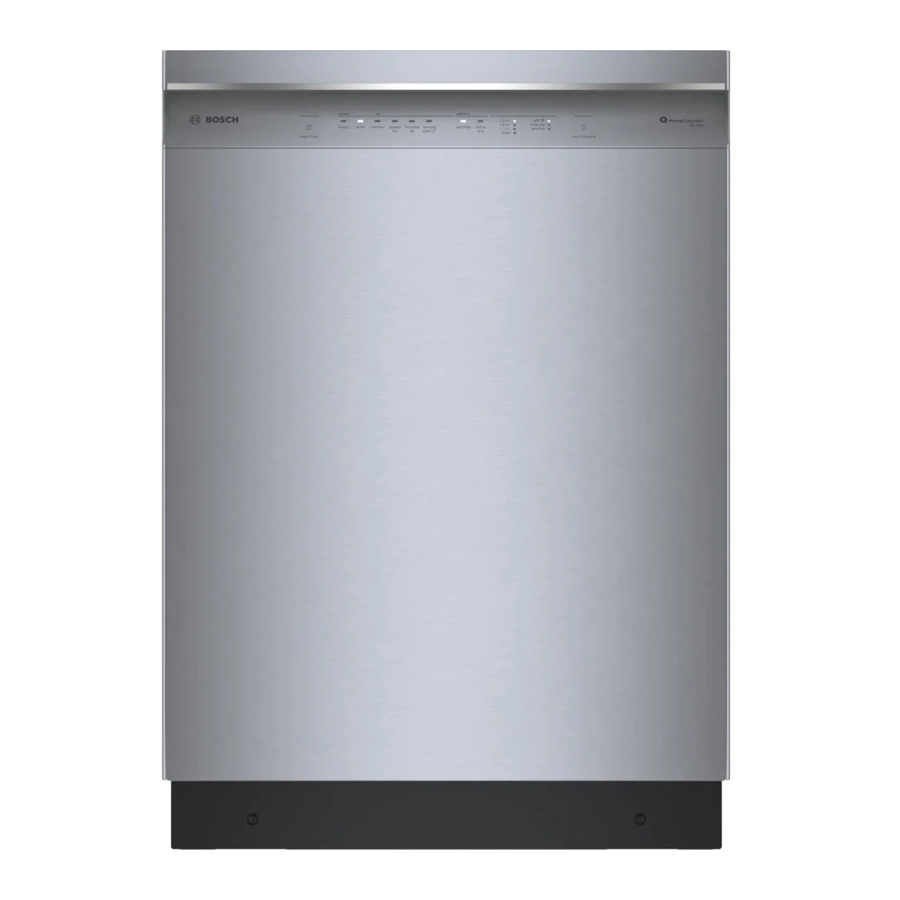IMPORTANT SAFETY INSTRUCTIONS
9
READ AND SAVE THESE INSTRUCTIONS
F E
S A
T
A N
R T
A D
P O
R E
I M
WARNING
When properly cared for, your new appliance has been
designed to be safe and reliable. Read all instructions
carefully before use. These precautions will reduce the
risk of burns, electric shock, fire, and injury to persons.
When using appliances, basic safety precautions must
be followed, including those in the following pages.
Examine the appliance after unpacking it. In the event of
transport damage, do not plug it in.
WARNING
TO REDUCE THE RISK OF FIRE, ELECTRIC SHOCK,
SERIOUS INJURY OR DEATH WHEN USING YOUR
WASHING MACHINE, FOLLOW BASIC PRECAUTIONS
INCLUDING THE FOLLOWING
Bosch washers are provided with an Operating, Care
▯
and
Installation
understand all instructions before using the washing
machine.
Do not wash articles that have been previously
▯
cleaned, washed, soaked, or spotted with gasoline, dry
cleaning solvents, other flammable or explosive
substances as they give off vapors that could ignite or
explode.
Do not add gasoline, dry cleaning solvents, or other
▯
flammable or explosive substances to the wash water.
These substances give off vapors that could ignite or
explode.
Under certain conditions hydrogen gas may be
▯
produced in a hot water system that has not been used
for 2 weeks or more. HYDROGEN GAS IS EXPLOSIVE.
If the hot water system has not been used for this
length of time, turn on all hot water faucets and let the
water flow out of each faucet for several minutes before
using the washing machine. This will release any
accumulated hydrogen gas. As the gas is flammable,
do not smoke or use an open flame while carrying out
this procedure.
Before the appliance is removed from service or
▯
discarded, remove the door to prevent children from
playing or hiding inside. Also remove the power cord/
plug.
Do not allow anyone to climb, lean or hang on any part
▯
of the washer including any protruding components
such as the appliance door or a pullout shelf.
Use caution when draining hot water from the washer
▯
drum such as during pump maintenance or when using
the emergency door open procedure.
Do not reach into the appliance if the wash drum is
▯
moving.
Do not tamper with the controls.
▯
Do not repair or replace any part of the appliance or
▯
attempt any service unless specifically recommended
in the user manual or in published user repair
instructions that you understand and have the skills to
carry out.
6
D
A N
Instruction
manual.
Read
V E
S A
Always unplug the washing machine from the power
▯
supply before attempting any service. Disconnect the
power cord by grasping the plug, not the cord.
Do not machine wash fiberglass materials (such as
▯
curtains and window coverings that use fiberglass
materials). Small particles may remain in the washing
machine and stick to fabrics in subsequent wash loads
causing skin irritation.
Do not install or store the washer where it will be
▯
exposed to the weather. Hoses and internal parts may
be damaged if exposed to freezing temperatures.
Do not use the washing machine if it has a worn power
▯
cord or loose plug.
The washing machine must only be used for its
▯
intended purpose.
Always
follow
▯
recommended by the clothing manufacturer.
Make sure all water connections to the washing
▯
machine
have
and
accessible during normal operation of the washer. Turn
off both valves during periods in which the washer is
not in use and before leaving for extended periods
such as vacations to reduce the risk of water damage
in the event of a leak. Turn the valves back on prior to
resuming use of the washer.
Do not operate the washing machine if parts are
▯
missing or broken.
Do not operate the washing machine until you are sure
▯
that:
the washing machine has been installed according
▯
to the Installation Instructions.
all water, drain, power and grounding connections
▯
are in compliance with all local regulations and/or
other applicable regulations and requirements.
See the installation instructions in this manual for
▯
grounding requirements.
~ Electrical connection; Page 17
E
E S
T H
the
fabric
care
shut-off
valves
that
N S
I O
C T
R U
S T
I N
instructions
are
readily

